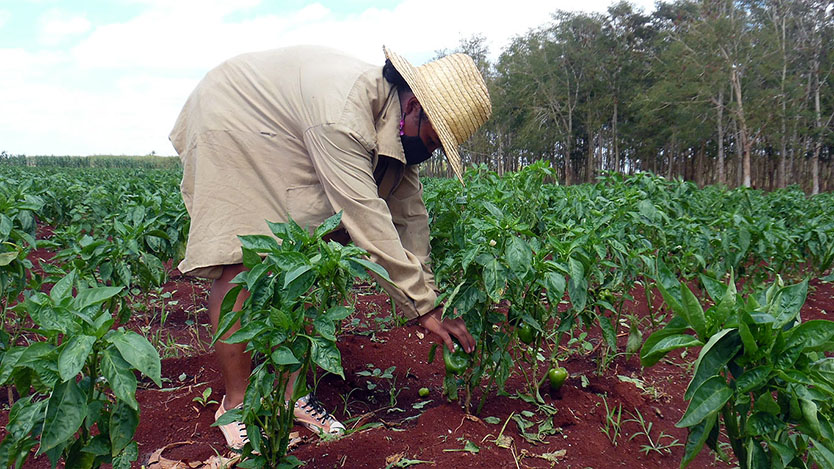
Improving the processes of production, transformation, marketing and consumption of food, and protecting the right of people to a healthy and adequate diet, are the fundamental objectives of this strategic legislation.
The third stage of implementation of Law 148/2022, on Food Sovereignty and Food and Nutrition Security (SSAN), begins to take place in Ciego de Ávila, a fundamental regulation to progressively advance the right to food in Cuba.
As it was reported in the last session of the Provincial Council, a Provincial Commission chaired by the governor and made up of 63 members was constituted for this phase; as well as the Municipal Food Sovereignty Commissions, which must work to achieve more stability in their proper functioning.
Seminars on the design and management of the implementation plan for the regulations were given, while the Municipal Development Strategy was reviewed with the purpose of incorporating it.
During this stage, work is done on the design and redesign of the programs, and the portfolio of development projects and their actions; in addition, to implement a training schedule for local governments and the actors of the Local Agrarian Systems (SAL).
At the same time, the map of actors of the food systems is configured with an inclusive approach, in which they actively participate in the decisions that affect them and are committed to the goals set. Like all the issues of this Law, it is of a multifactorial nature, since in the articulation of this mapping the Territorial Ordering, the Plan of the Economy and the Life Task are taken into consideration.
The working group that carries out the diagnosis and identification of the available information was also formed to focus on meeting local food needs, especially those related to people in vulnerable situations.
"This issue is strategic for the territories, to which we must give the highest priority," Governor Tomás Alexis Martín Venegas said.
Yaisel Vega González, delegate of Agriculture, reported that among the objectives to be measured are compliance with the different programs (milk, meat, fruits, vegetables, the five kilograms of animal protein); the development of the business system (which includes municipal agro-industrial companies); credits and foreign investment that can contribute to food sovereignty; and compliance with the 63 measures to boost agricultural production (hiring, agro-industrial development, marketing).
Likewise, he added that attention would be paid to rurality, the efficient management of the labor force, the control of the cattle mass, the research centers and their scientific potential in the municipalities, extensionism, and financial treatment of cooperatives and politics of prices.
Regarding the next steps to follow in the implementation of the SSAN Law, Liván Izquierdo Alonso, first secretary of the Communist Party of Cuba in the province, commented on the importance of reaffirming the progress achieved; while in the remaining tasks know those responsible and their execution time.
“This is all a matter of the highest priority. The first step to achieve the autonomy of a municipality is to have its food, and there are some people from Ciego de Ávila who do not assure it”, called the attention of the member of the Central Committee of the Communist Party of Cuba.
Izquierdo Alonso referred to the importance of contributing to self-sufficiency from the family level, an experience that gave good results during the Special Period, in the nineties of the last century.
“The other issue is that we have no control over what is being planted. In the municipalities, it is necessary to prevent all the food that escapes today due to a lack of efficient contracting, without authorization, which often goes into the hands of resellers and speculators,” he said.
Regarding the latter, he said that it would not be resolved with inspections on the roads, but by sticking to the ground, with the producers in each instance: "the cycle of what is sown, harvested and delivered must be closed."
An insufficient multifactorial approach in innovation systems, which causes little use of the results of science and technology is among the problems and limitations detected in Ciego de Ávila during the second stage of the law related to capacity building.
In addition, there are the limitations of material and financial resources for project management; the unfavorable living conditions in the communities, largely linked to the agricultural sector, which causes an exodus to urban centers and, therefore, insufficient agricultural labor force: low qualification of the existing one and little social recognition of the workers.
In the same way, the use of agro-ecological alternatives for the improvement of soils is scarce, in correspondence with their exploitation, and inefficient irrigation systems predominate.




